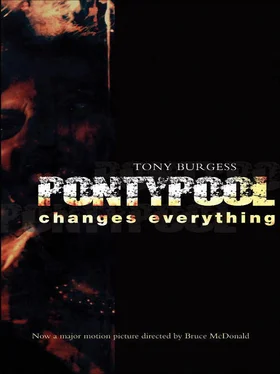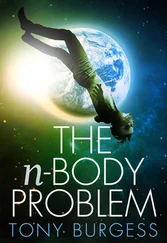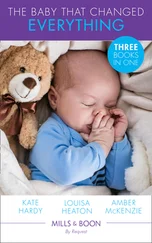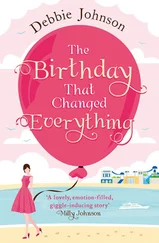Greg looks at the corner of the shack. A white stone foundation. Weathered boards, cupped by the sun, meeting in rough gaps at the edges. Not good. Not good for people. I’m scared.
“In fact, you’ll probably read about this one sometime in the fall. In the meantime, it’s a bit of a wholesale outlet. People are brought here, not by the guy who lives here, but by people who need to do a little intimidating. It’s used by several organizations who don’t even know each other. Who leave, not knowing where they’ve come to. A lot of big business. You want to make sure something goes your way, you just give the right person a tour of the shack and, man, things start going exactly the way you want them to. Some organized crime, of course. Some government. Not always Canadian, either. Some military. This little shack is very busy.”
Grant plucks a shoot from the wet sleeve that holds it in the ground. He sucks on the juice leaking from its slender trunk.
“Yessir. And when it gets a little too crazy, somebody sends in the cops. And, ta-da, they arrest some demented little individual in a House of Horrors. Everything is accounted for. No leftovers. The simple answers. The world needs a little something extra to keep it eager. Something that nobody would ever believe.”
Grant gets up and walks toward the graves. He steps up on the lawn and turns, with his hands on his hips, to face Greg. Greg closes his eyes. Out of the darkness a pair of snapping teeth rush toward him. He opens his eyes and lays his hands on his pounding chest.
“Your buddy Steve and his girlfriend are in there right now. You can’t hear them. It’s soundproof. But I betcha it’s godawful noisy in there right now.”
A blackbird with tiny crimson shoulders falls from a tree and swoops into the light around Grant. He steps away from the shack. He huddles his back and rises to the tips of his toes. He crosses his lips with a finger and holds out an upraised hand to Greg.
Greg hears himself through a broken staccato of words. I’m thinking this is a lie. Grant stops halfway to the picnic table.
“Hey, you alright? You don’t look so good.”
Intimidation. He wants something from me. Why doesn’t he just ask?
18
As Fluids Go, This One’s…
On the wall are four long filleting knives. Three of them are as shiny and clean as the corner of an eye. The fourth hasn’t been cleaned at all and has a crust of blood along its blade, concluding at the tip in a tiny black ball. Fingers have splashed up to grab these knives over and over again, leaving a heavy encaustic of blood on the wall behind their handles. A spotted bare lightbulb is suspended over the bench below the knives. Strips of newspaper are permanently plastered to the wood surface, dozens of bright corners crossed by black angles. Most of what has been done here has been done quickly and sloppily. Some of what has been done here has been carefully executed, caught before it rolled to the floor and wrapped. To the left of the bench along a back wall sits a long white freezer. Its top edge is browned by a dragging apron and the knuckles of a large man, like faint hinges, have stained the seal.
Jimmy is sitting in a corner behind the door on an overturned bucket. He has been staring directly at the lightbulb, trying to blind himself. The light has long stopped hurting his eyes. The brightness eating at the centre of his vision is no longer white. Long green wires whip and shrivel across its surface. Patterns of black zeros rise to the top and blot out the light in a throb before sinking back to burn off. Jimmy hears a scrape on the floor beside him. He looks down and his vision is as solid as a jelly bean. He thinks it must be an animal. What kind? Rat? The door opens, and he turns his head to face it. A dark green tower leans off the shattering scales of a gold river coming through the door. Towards him. Jimmy looks down, blinking. No light. Darkness.
“Jimmy? Are you OK?”
Julie walks over to the bench and drops a bucket of raspberries on the corner. She swings a hatchet up to rest between the two nails that hold its neck to the wall. Jimmy blinks in a frenzy, trying to find his feet on the floor. The scales that exploded through the room when Julie entered have now fallen to the ground. They lie around him in a carpet of dull orange. Jimmy extends the toe of his running shoe, pushing the scales. A large fly lands in the pile like a fat bomb and vibrates against Jimmy’s foot. Its energy tickles the undersides of his toes. Jimmy presses down, killing the fly.
“It smells in here, Jimmy. Ugh. Fish guts.”
She looks at her brother. Behind him on the wall hangs a wooden board with the prices of fresh fish written in felt pen. Jimmy has an empty space in his saucer-sized pupils. Julie walks over to him and squeezes his little shoulders against her side.
“We can clean this place up. There’s a stove, a freezer. Everything we need, Jimmy. I don’t even care if you never talk again. What’s there to say anyway?”
Jimmy hangs a fistful of shirt off his sister. Colours are returning to the room.
Over the next few days the children are busy, sweeping fish scales from the floor, soaping down the dried blood and creating a pantry of wild foods on shelves over the freezer. They self-consciously copy their parents, and Julie occasionally calls her brother by his father’s name — “Good morning, George.” Even Jimmy’s silence begins to resemble his father’s. His blunt jerks of the head — “No,” “Yes.” They become a way of telling his wife that Yes, I am my father. And by the end of the week they have created a veritable homestead out of the fish-cleaning hut.
One thing, however, is beginning to pose a serious threat to their survival. Their diet is lacking certain food groups, and because of this they are growing weak. By the fifth day Jimmy returns to his bucket. He no longer responds to his sister. A hungry fear has made her frantic. She has begun to hear things and has taken to running outside every five minutes, only to return, asking: “George, did you hear that?”
A few days later, in the afternoon, Julie rose from the floor beside Jimmy and dashed to the door for the sixth time. It opened on a man who had been listening.
Grant Mazzy stood, surprised, looking down at the girl with the burnt, skinny face. He opened his mouth to call out for Greg, when a hatchet whacked his knee, cleaving the cap into free halves. He reached up into the air as the cap halves rolled under skin to meet at the back of his leg. A second whack of the hatchet released a sandwich-sized pair of intestinal loops. He reached down, gloving his hand inside the base of his abdomen. A deep and desperate flex of muscle, still clinging, bent his fingers back. A third whack cleared the hand from his arm, dropping it, like a coin tossed from a balcony, deep into his torso. The hand turned backward off the bottom of his heart and sprang back up from a mattress of lung, landing, finally, to rest, partially clenched, in a rack of ribs. These ribs lay across the threshold at the front of the hut. The ribs were protecting the hand as best they could as blows reigned down from above, but soon they too collapsed under the silver eye of the hatchet.
Jimmy looks through the fingers that cage his face. Julie’s body is dripping with the blood of the now nearly liquid intruder.
“C’mon, George, gimme a hand here.”
Soon the bottom of the freezer is lined with heavy oblong objects neatly bundled in newspaper. Each bundle is clearly labelled in felt-tip marker: shoulder, calf, upper arm, lower back, tongue. In the days that follow, the children lay out elaborate meals on the picnic table in the evening shade of a birch tree behind their home.
Читать дальше












